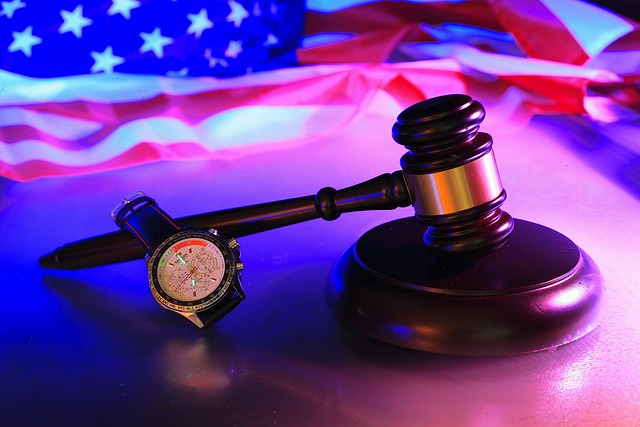Understanding litigation risk in criminal cases involves proactive self-defense strategies. These tactics include thorough due diligence, employee training, transparent record-keeping, and meticulous documentation. For white-collar crimes, analyzing the case from various angles enhances defense success rates. Effective best self-defense tactics hinge on legal preparedness and key documents management. Strategic communication manages public perception, while post-trial scenarios demand meticulous risk management for favorable outcomes. Skilled attorneys navigate complex landscapes to achieve extraordinary results.
In the intricate dance of litigation, effective risk management is a strategic move towards victory. This article equips you with a comprehensive guide to navigate the complex landscape of criminal cases. From understanding the subtle signs of impending litigation to post-trial maneuvers, we uncover the best self-defense tactics. Learn how proactive strategies, robust legal preparation, strategic communication, and meticulous evidence management can fortify your defense. Master these skills to transform potential threats into manageable challenges.
- Understanding Litigation Risk: Identifying Potential Threats
- Proactive Self-Defense Strategies: Building a Strong Case
- Legal Preparedness: Key Documents and Evidence Management
- Strategic Communication: Navigating Media and Public Relations
- Post-Trial Scenarios: Handling Outcomes and Appeals
Understanding Litigation Risk: Identifying Potential Threats

Understanding Litigation Risk involves recognizing that legal battles are complex and unpredictable. Identifying potential threats is a proactive step in managing risks effectively. Businesses and individuals must be vigilant, especially when dealing with white-collar and economic crimes, as these cases can have significant financial and reputational consequences. By employing the best self-defense tactics in criminal cases, one can aim for the complete dismissal of all charges or, at the very least, winning challenging defense verdicts.
Key to this process is thorough due diligence. This includes reviewing internal policies, ensuring compliance with regulations, and meticulously documenting procedures. Such proactive measures can significantly reduce the likelihood of litigation. Regular training of employees on legal compliance, for instance, can deter potential perpetrators from engaging in fraudulent activities. Additionally, maintaining transparent records and fostering a culture of ethical conduct serve as robust defenses against charges, enhancing one’s ability to navigate legal challenges successfully.
Proactive Self-Defense Strategies: Building a Strong Case

In the realm of litigation risk management, proactive self-defense strategies are crucial for building a robust case and securing favorable outcomes in criminal matters. The best self-defense tactics in criminal cases involve meticulous preparation and a comprehensive understanding of the law. By employing these strategies, individuals and respective businesses can navigate complex legal landscapes and win challenging defense verdicts. This includes thorough fact-finding, preserving relevant evidence, and meticulously documenting every step to counter potential accusations effectively.
For instance, in white collar defense, a strategic approach involves analyzing the underlying facts from multiple angles to identify weaknesses in the prosecution’s case. This proactive measure enables legal teams to craft persuasive arguments, exploit procedural gaps, and present compelling alternative theories. Ultimately, these tactics not only strengthen defenses but also enhance the overall efficiency of navigating high-stakes litigation, ensuring better outcomes for all parties involved.
Legal Preparedness: Key Documents and Evidence Management

In the realm of litigation risk management, legal preparedness is a crucial best self-defense tactic in criminal cases. At the heart of this preparation lies effective key documents and evidence management. Organize and safeguard all relevant case materials, from contracts to communications, ensuring their authenticity and accessibility. This meticulous approach not only bolsters your defense strategy but also demonstrates thoroughness and professionalism to the court.
By implementing robust systems for document retention and evidence preservation, you enhance your ability to counter accusations, especially in complex cases like white-collar and economic crimes. Achieving extraordinary results often hinges on presenting a compelling narrative through well-managed evidence. Mastering these tactics can lead to winning challenging defense verdicts, demonstrating that proactive legal preparedness is a key ingredient in achieving success.
Strategic Communication: Navigating Media and Public Relations

Strategic communication plays a pivotal role in litigation risk management, especially when facing high-stakes cases and jury trials. The way a respective business or organization chooses to navigate media and public relations can significantly impact the perception of their brand and the outcome of legal battles. In complex or controversial criminal cases, the defendant’s team often employs best self-defense tactics to shape public opinion. This involves meticulous planning and execution in managing media interactions, press releases, and public statements to present a favorable narrative.
A well-structured communication strategy enables defendants to control the flow of information, counter false narratives, and build a strong defense. It’s crucial to engage experienced communicators who understand the nuances of legal procedures and can effectively convey complex issues to diverse audiences. This proactive approach helps in managing public expectations and ensures that the defendant’s rights and interests are protected throughout jury trials, where public perception can significantly influence the verdict.
Post-Trial Scenarios: Handling Outcomes and Appeals

After a trial, the focus shifts to post-trial scenarios, where effective litigation risk management becomes even more critical. The outcome can range from a favorable verdict to a need for appeals, each requiring meticulous handling. For criminal cases, understanding and employing the best self-defense tactics are paramount, especially in high-stakes situations involving corporate and individual clients. Legal teams must be prepared to navigate complex legal landscapes, ensuring their strategies align with achievable goals.
In the event of an unfavorable judgment, immediate action is essential. Appeals processes can be intricate, demanding a thorough review of the trial’s proceedings. Skilled attorneys will scrutinize evidence, identify potential errors, and construct compelling arguments to advocate for their clients’ rights. Achieving extraordinary results in these challenging cases often hinges on the agility and expertise of legal counsel, who must remain steadfast through every turn of the judicial process.
Effective litigation risk management is paramount for any organization or individual facing potential legal challenges. By understanding the risks, employing proactive self-defense strategies like the best self-defense tactics in criminal cases, and ensuring thorough legal preparedness, one can significantly mitigate negative outcomes. Strategic communication plays a vital role in managing public perception, while navigating post-trial scenarios with clarity ensures resilience and adaptability. Implement these key practices to fortify your defense and enhance your chances of success.






